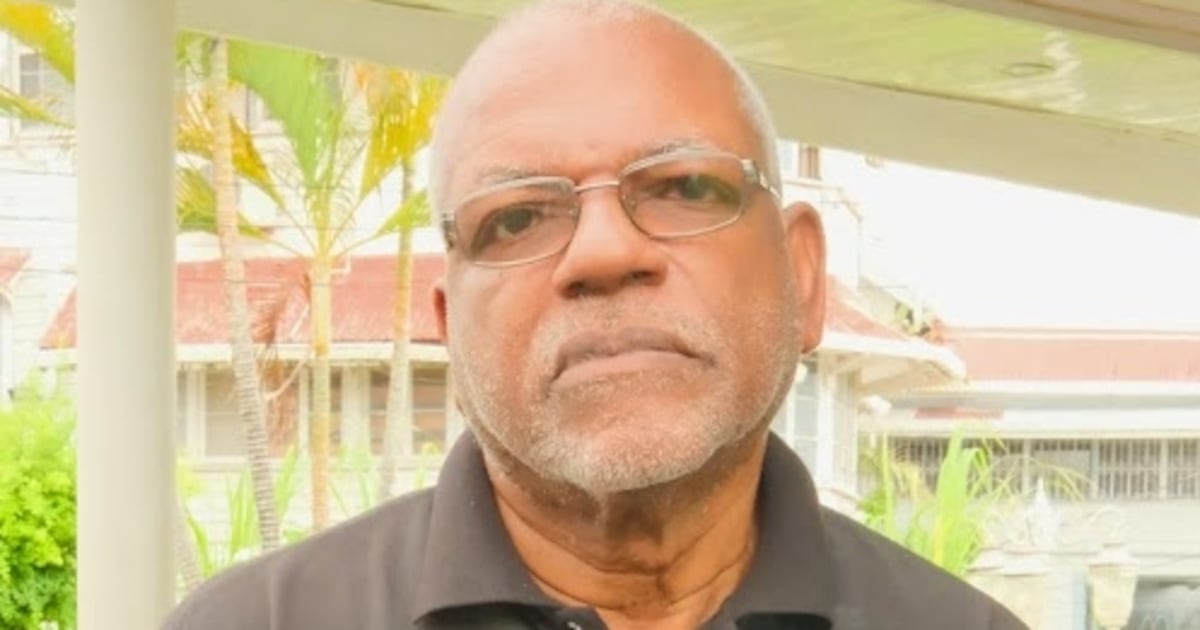World
Guyanese Activists Challenge ExxonMobil’s Oil Dominance

Oil has emerged as a contentious issue in Guyana, with local campaigners intensifying their efforts against ExxonMobil’s operations. Fred Collins, director of Transparency International in Guyana, highlights the complexities that have arisen since the company’s significant oil discovery off the coast in 2015. Initially, Collins, a retired mathematics teacher, approached his role with a cautious optimism, aware of the detrimental effects oil had on regions like the Niger Delta and Venezuela.
Collins expressed his concerns, stating, “I would have had an inkling that oil was not the panacea for economies it appeared to be to some.” Over the past decade, controversies have arisen, including a production-sharing agreement that heavily favors ExxonMobil, allowing the company to take a substantial share of the profits while leaving Guyana with only 14.5 percent. Additionally, issues of limited oil-spill liability and political misconduct have surfaced, prompting Collins and fellow activist Godfrey Whyte to take legal action.
In a landmark ruling in 2023, Collins and Whyte challenged the Guyana Environmental Protection Agency (EPA) for not securing a guarantee from ExxonMobil to cover potential oil spill costs. The EPA’s appeal led to a temporary court order requiring ExxonMobil to set aside $2 billion in US dollars as a guarantee, pending the outcome of the appeal. The final ruling on this matter remains forthcoming, underscoring the ongoing struggles faced by activists in a system that Collins describes as “a system that clips civil society’s wings.”
The pervasive presence of ExxonMobil in Georgetown, Guyana’s capital, is evident through billboards and even sports team jerseys. This visibility is largely due to the Greater Guyana Initiative, a $100 million investment by ExxonMobil and its partners aimed at enhancing community engagement. While ExxonMobil Guyana president Alistair Routledge emphasizes the importance of connecting with the local populace, environmental campaigner Vanda Radzik views this as mere “greenwashing.” Radzik questions, “If there was all this oil wealth in Guyana, why would we need to go with a begging bowl to get some trickles from Exxon’s CSR?”
Radzik is not alone in her activism. She has also engaged in legal battles against the EPA regarding environmental impact assessments and the management of hazardous waste. “The oil belongs to us, the Guyanese people. It doesn’t belong to Exxon, nor the government,” she asserts. Radzik and other activists continue to advocate for transparency and accountability in oil management.
Sherlina Nageer, founder of the Greenheart Movement, employs community engagement techniques inspired by Walter Rodney’s “groundings” approach from the late 1960s. “We basically just sit and talk – break down lofty concepts and have a heart-to-heart with people, often through the arts or simple discussion,” Nageer explains. She encourages Guyanese citizens to reconsider the prevailing narrative that equates progress with unexamined growth.
In 2022, Nageer was part of a lawsuit against the EPA for unlawfully modifying an environmental permit to allow gas flaring. Though the case was dismissed, it revealed the troubling alliance between the EPA and ExxonMobil. “The EPA is supposed to protect our constitutional right to a clean environment,” she states. “But here they are, partnering against us.”
As Guyana approaches general elections on September 1, 2025, tensions surrounding oil policy remain high. The ruling PPP party faces scrutiny for not renegotiating the 2016 production-sharing agreement, while the main opposition party, the APNU, is criticized for having signed it. Collins emphasizes that even if activists face legal setbacks, their efforts contribute to a larger movement pushing for change in the oil and gas sector.
The activists often encounter challenges, including derogatory labels such as “the lunatic fringe.” Collins, now at the age of 75, reflects on his motivations, stating, “I don’t know how much longer I have to live, but I know that if the young people don’t have people like us doing something about these issues, things will get worse.” Nageer shares a similar sentiment, asserting, “I’m doing what I think a good global citizen should do. And I know I’m on the right side of history.”
The ongoing struggle against ExxonMobil’s influence in Guyana serves as a critical reminder of the complexities surrounding resource management and the need for robust civil society engagement in shaping the country’s future.
-

 Top Stories3 months ago
Top Stories3 months agoTributes Surge for 9-Year-Old Leon Briody After Cancer Battle
-

 Entertainment4 months ago
Entertainment4 months agoAimee Osbourne Joins Family for Emotional Tribute to Ozzy
-

 Politics4 months ago
Politics4 months agoDanny Healy-Rae Considers Complaint After Altercation with Garda
-

 Top Stories4 months ago
Top Stories4 months agoIreland Enjoys Summer Heat as Hurricane Erin Approaches Atlantic
-

 World5 months ago
World5 months agoHawaii Commemorates 80 Years Since Hiroshima Bombing with Ceremony
-

 Top Stories3 months ago
Top Stories3 months agoNewcastle West Woman Patricia Foley Found Safe After Urgent Search
-

 Top Stories5 months ago
Top Stories5 months agoFianna Fáil TDs Urgently Consider Maire Geoghegan-Quinn for Presidency
-

 World5 months ago
World5 months agoCouple Convicted of Murdering Two-Year-Old Grandson in Wales
-

 World5 months ago
World5 months agoGaza Aid Distribution Tragedy: 20 Killed Amid Ongoing Violence
-

 World5 months ago
World5 months agoAristocrat Constance Marten and Partner Convicted of Infant Murder
-

 Top Stories4 months ago
Top Stories4 months agoClimbing Errigal: A Must-Do Summer Adventure in Donegal
-

 Top Stories4 months ago
Top Stories4 months agoHike Donegal’s Errigal Mountain NOW for Unforgettable Summer Views









